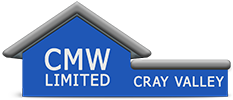
Introduction
Choosing the proper fasteners is crucial for construction, repair, or even simple DIY projects. Bolts and anchors are two fundamental fasteners, each with strengths and applications. Understanding their differences and knowing when to use each can save you time, effort, and money. This guide will explore the characteristics, applications, and considerations for bolts and anchors to help you make informed project decisions.
Bolts: The Backbone of Structural Stability
Bolts are mechanical fasteners designed to join two or more components together using a threaded shaft and a corresponding nut. They come in various sizes, materials, and designs, each tailored to specific applications.
Types of Bolts
Hex Bolts: Recognizable by their hexagonal heads, hex bolts are versatile and commonly used in construction, machinery, and automotive applications.
Carriage Bolts: These bolts, featuring a smooth, rounded head and a square or ribbed neck, are ideal for securing wood or metal components.
Eye Bolts: With a circular loop at one end, eye bolts are perfect for lifting heavy loads or securing cables and wires.
Anchor Bolts: Designed to attach structures to concrete or masonry, anchor bolts provide stability and resistance against lateral forces.
Materials
Steel: The most common material for bolts due to its strength, durability, and cost-effectiveness.
Stainless Steel: Offers corrosion resistance, making it suitable for outdoor or marine applications.
Brass: Known for its aesthetic appeal and corrosion resistance, brass bolts are often used in decorative fixtures and furniture.
Applications
Construction: Bolts connect structural elements such as beams, columns, and trusses, ensuring stability and safety.
Automotive: From engine components to chassis assembly, bolts are essential for vehicle manufacturing and repair.
Machinery: Bolts secure moving parts, frames, and enclosures in various industrial machines, ensuring proper function and safety.
Anchors: Keeping Things Grounded
Anchors are fasteners that attach objects to surfaces such as concrete, brick, or drywall, providing stability and load-bearing capacity where more than traditional fasteners may be required.
Types of Anchors
Expansion Anchors: These anchors expand upon installation, creating a secure grip within the base material. Common types include wedge anchors, sleeve anchors, and drop-in anchors.
Toggle Bolts: These bolts consist of a threaded bolt and a spring-loaded wing and are ideal for hanging heavy objects on drywall or hollow surfaces.
Chemical Anchors: Chemical anchors utilize epoxy or resin adhesives and provide a robust and permanent bond between the anchor and the base material. They are commonly used in structural applications.
Screw Anchors: Also known as masonry screws, these anchors feature coarse threads designed to bite into masonry materials such as brick or concrete.
Materials
Steel: Provides strength and durability and is suitable for heavy-duty applications and outdoor use.
Nylon: Lightweight and corrosion-resistant, nylon anchors are commonly used in non-load-bearing applications.
Plastic: Cost-effective and versatile, plastic anchors are ideal for light-duty tasks such as hanging pictures or installing shelves.
Applications
Home Improvement: Anchors are indispensable for hanging shelves, mirrors, curtain rods, and other wall fixtures.
Commercial Construction: Anchors are essential for securing various components in commercial buildings, from installing HVAC systems to mounting signage.
Infrastructure: Anchors are crucial in constructing bridges, tunnels, and dams, providing stability and reinforcement in challenging environments.
Choosing the Right Fastener: Considerations and Tips
Load Requirements: Determine the expected load and choose fasteners capable of supporting it safely.
Base Material: When selecting fasteners, consider the composition and condition of the base material (concrete, wood, drywall).
Environmental Factors: Consider factors such as moisture, temperature, and chemical exposure that may affect fastener performance.
Installation Method: Follow manufacturer guidelines and use appropriate tools for proper installation to ensure maximum effectiveness and safety.
Consultation: When in doubt, consult a professional or refer to engineering specifications to ensure the correct fasteners are selected.
FAQs
What are the main differences between bolts and anchors?
Bolts are mechanical fasteners that combine two or more components, typically with a threaded shaft and nut. At the same time, anchors are fasteners that attach objects to concrete, brick, or drywall surfaces.
How do I choose between bolts and anchors for my project?
Consider the application, load requirements, base material, and environmental factors. Bolts are ideal for structural connections, while anchors are suitable for attaching objects to surfaces where traditional fasteners may not suffice.
What materials are bolts and anchors commonly made of?
Depending on the application and desired properties, bolts are often made of steel, stainless steel, or brass. Anchors can be made of steel, nylon, plastic, or even specialized materials like epoxy resins for chemical anchors.
Can I use bolts as anchors and vice versa?
While some applications may overlap, it's generally not recommended to substitute one for the other without proper consideration of load-bearing capacity, base material compatibility, and installation requirements.
How do I ensure proper installation of bolts and anchors?
Follow manufacturer guidelines, use appropriate tools, and consider consulting with professionals or referring to engineering specifications to ensure proper installation and maximum effectiveness for your fasteners.
Conclusion
Bolts and anchors are indispensable components in construction, repair, and DIY projects. Each serves a distinct purpose and offers unique advantages. By understanding their characteristics, applications, and considerations, you can confidently choose the correct fasteners for your specific needs, ensuring the success and durability of your projects.
If you want to take a closer look at our range of Bolts & Anchors, click here. If you want to contact or find out more about this blog posts author, Dave click here.
